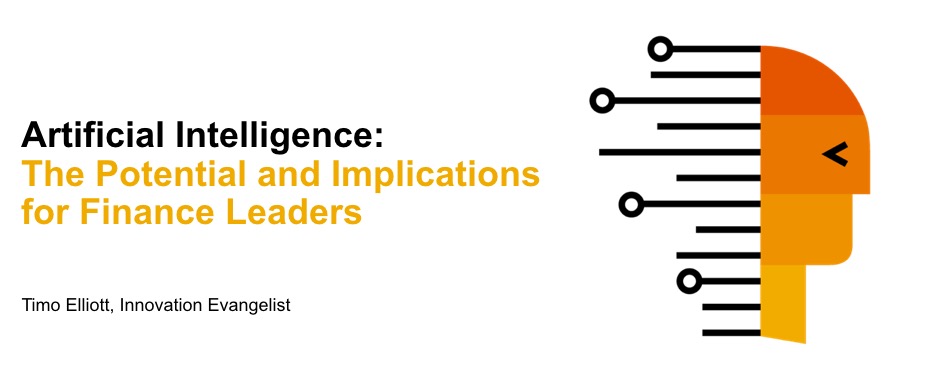Last week, I presented a session for The Conference Board on the potential and implications of artificial intelligence for Finance Leaders.
After explaining the current research around artificial intelligence and machine learning, I covered four main areas where AI is being used for the financial function today:
- Automating end-to-end processes
Increase efficiency and reduce costs. For example, machine learning can automate complex, repetitive decisions such as invoice matching; automatically recognize fields from invoices and expenses; automatically discover potential problems in invoices, and much more. All of this reduces manual interventions, leaving more time for strategic finance. - Detect and prevent
Detect and rank information out of Big Data. Use machine learning to automatically detect fraud in money transfers, employee expenses, and more. - Predict
Derive knowledge from historical information to increase the accuracy of predictive scenarios. Augment traditional financial analytics with more powerful data matching, pattern recognition, etc. and discover the potential of predictive financial closes. - Proactive context-sensitive support
Digital assistants boost productivity of financial experts using machine learning to improve context-sensitive, self-service access to financial data.


Comments
One response to “Artificial Intelligence: The Potential And Implications For Finance Leaders”
[…] This article originally appeared on Digital Business & Business Analytics. […]